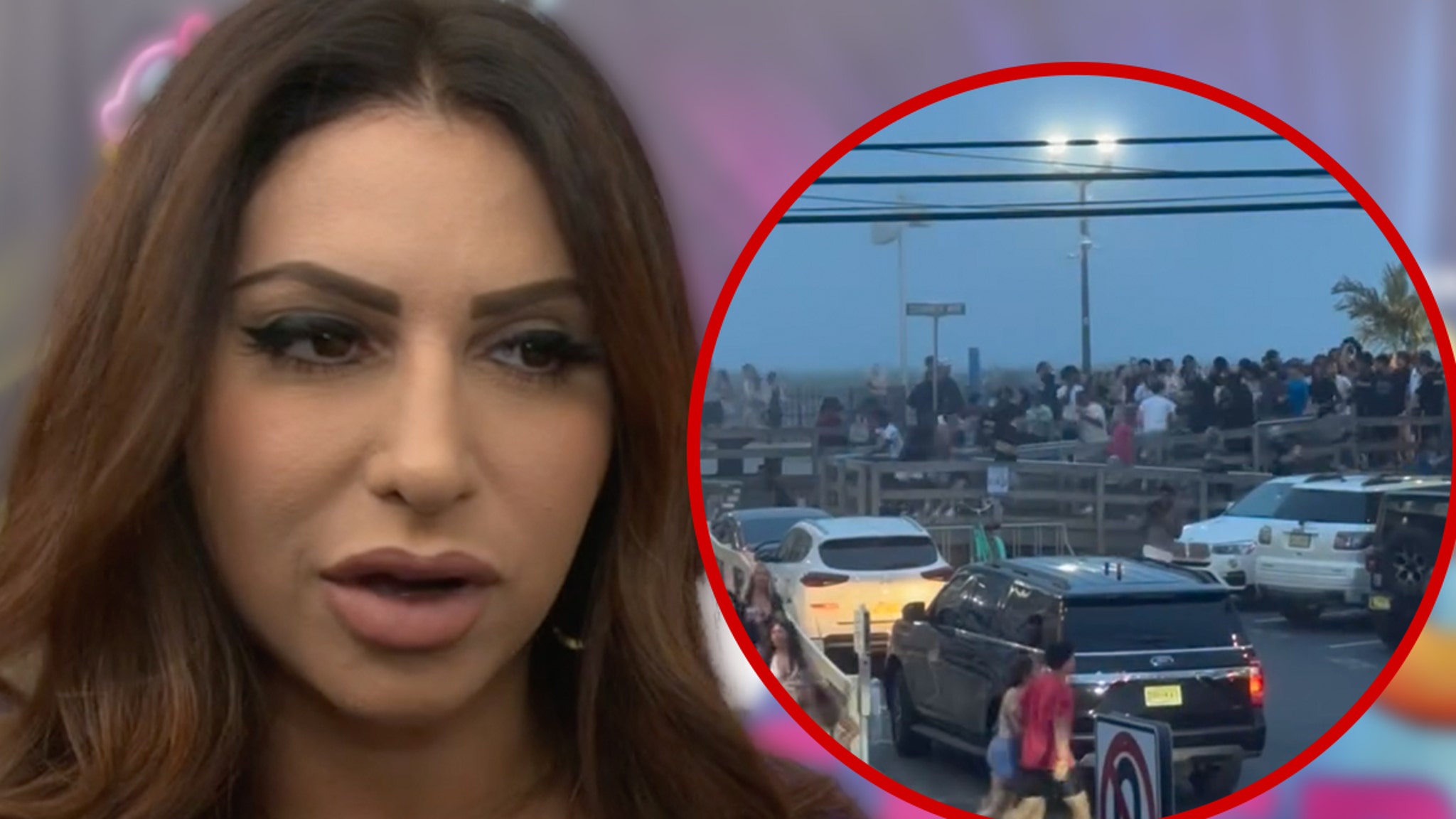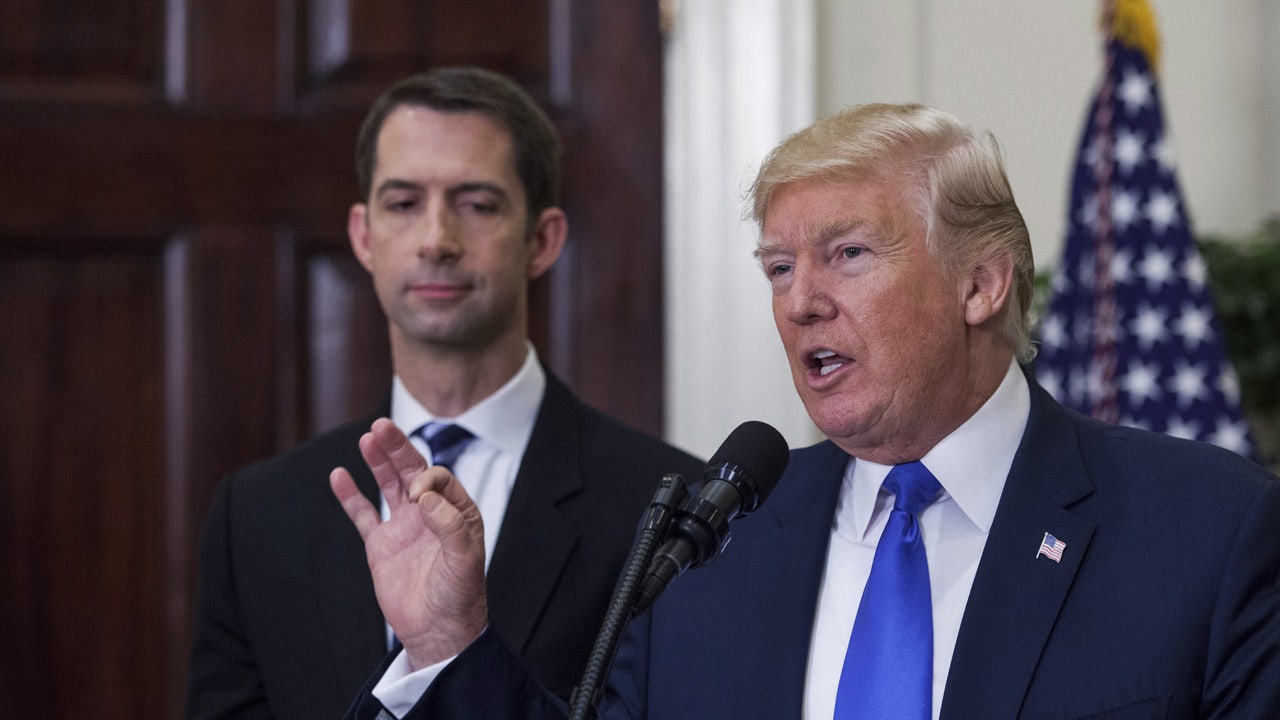World
‘People foaming at the mouth’: 10 years since chemical attacks in Ghouta

Idlib, northwest Syria – It has been 10 years since the chemical attacks in eastern Ghouta, on the outskirts of the capital, Damascus, and Umm Yahya – a nurse at a local hospital at the time – still cannot forget the images of people convulsing and foaming at the mouth.
Shortly after midnight on August 21, 2013, the Syrian regime attacked the towns of Zamalka, Ein Tarma, and Irbin in the Ghouta countryside with a nerve agent.
According to the Syrian Network for Human Rights (SNHR), a total of 1,127 people were killed in the attacks. Nearly 6,000 others suffered from suffocation and respiratory problems.
The SNHR said gassing people in their sleep demonstrates that the attacks were “premeditated and deliberate”.
“The weather in the region had been forecast to be relatively cool and calm between 02:00 and 05:00 that night, meaning those responsible knew that the air would be still and the heavy poison gas would naturally drift downwards and settle at ground level rather than blowing away,” a statement by the rights group said.
At the time, Umm Yahya had finished her shift at the hospital at about 1am. She noted that, unusually, she was short of breath, and went home. But a few minutes later, an ambulance driver she knew – Abu Khaled – was knocking on her door, telling her there were many injured people.
That surprised her, as she had not heard the sound of shelling or missile attacks.
“I went down to the ambulance and found that Abu Khaled had brought people – men, women and children – foaming at the mouth, suffocating,” Umm Yahya recalled, speaking at a memorial in Idlib that marked a decade since the Ghouta attacks.
The Sunday memorial was attended by activists, witnesses, and civil defence volunteers, who had gathered as part of the “Don’t Suffocate the Truth” campaign. They carried slogans and demanded accountability for the perpetrators of the chemical attack.
For Umm Yahya, that night in 2013 was long and painful, mired in chaos, and the body count continued to grow to the point where her hospital could no longer accommodate any more patients and victims.
“All we could see were people choking and convulsing,” she said. “We did not understand what was happening. Someone came and told us to spray the injured with water, then a doctor said to give them atropine. I didn’t know what to do, and I had nothing but oxygen to administer to them.”
Atropine is used to treat a slow heartbeat in an emergency. It is also used to reduce saliva and fluid in the respiratory tract during surgery.

It was only at dawn that the hospital staff realised the cause of the suffocation was a chemical weapon, Umm Yahya said.
“I cannot forget the gasps coming out of the suffocating children, the foam coming out of their mouths, the terrified look in their eyes. In the morning, the hospital floor was full of dead bodies.”
The nurse counted 300 dead and asked for the bodies of the women and children to be separated from the men’s. The hospital staff began wrapping them in shrouds, but there were not enough to go around.
The ordeal did not end there. While the surviving families and hospital staff were transporting some of the bodies for burial, they were attacked by warplanes.
“Those families who were killed by the chemical weapon had a merciful death, compared with those who were killed by the warplanes,” Umm Yahya said bitterly. “As a result of the bombing, there were amputated limbs and blood everywhere.”
Among the dead were paramedics and Dr Abdul Ghani, who worked at the hospital and was killed along with his son. There were so many dead people that it was decided to dig a mass grave for them instead of individual ones.
Three days after the attack, people came to the hospital to say they had not heard or seen their neighbours for days. Umm Yahya, ambulances, and a monitoring committee made their way there and were greeted by the macabre sight of whole families lying lifeless in their homes.
“Honestly, there wasn’t a door in Zamalka and Ein Tarma that we opened without finding entire families dead,” she said. “We stood helpless, not knowing what to do.”
In one of the houses, she found a bride and a groom, whose wedding she had attended just days earlier, lying lifeless near the door, as if they were trying to escape. In another house, a family of seven were found dead.
The dead were covered in nylon bags because the funeral shrouds had run out. Six days after the attack, there were still a few houses that had not been checked, their dead inhabitants still inside.

“What I saw there was horrible. The features of someone killed by chemical weapons change after five or six days. Believe me, they had no recognisable features left,” Umm Yahya said.
Some of the surviving family members would not claim their relatives because of their distorted faces, leading the nurse to record many of the dead as anonymous.
The ordeal took a great toll on Umm Yahya, and for two weeks, she was unable to work or even move her body.
“I keep remembering how the children were sobbing, and how a father begged me to save his child, and all I could tell him was that I couldn’t do anything,” she said.
“I can take care of people who are wounded, or take out shrapnel from a bombing, but I couldn’t do anything for the victims of the chemical attack. We did everything we could.”
Umm Yahya hopes there will be justice for the families and victims, and that Syria’s President Bashar al-Assad and his government are held accountable one day.
“I just hope that people will not forget Assad’s criminality, and to support us with their hearts and souls,” she said.
The SNHR has documented a total of 222 chemical weapon attacks in Syria since the first recorded use of chemical weapons on December 23, 2012, up until August 20, 2023.
“Approximately 98 percent of all these attacks have been carried out by Syrian regime forces, while approximately 2 percent were by ISIS [ISIL],” the group said.
Referring to the 2013 Ghouta attacks as “the largest chemical weapon attack in the modern age”, SNHR said the al-Assad regime is still protected by impunity and called on the United Nations to impose economic, political, and military sanctions on the Syrian government.


World
Kremlin condemns NATO boss's appeal for Ukraine to use Western arms in Russia

World
Memorial Day ceremony held in Baghdad to honor US Army soldiers killed in Iranian-backed drone attack
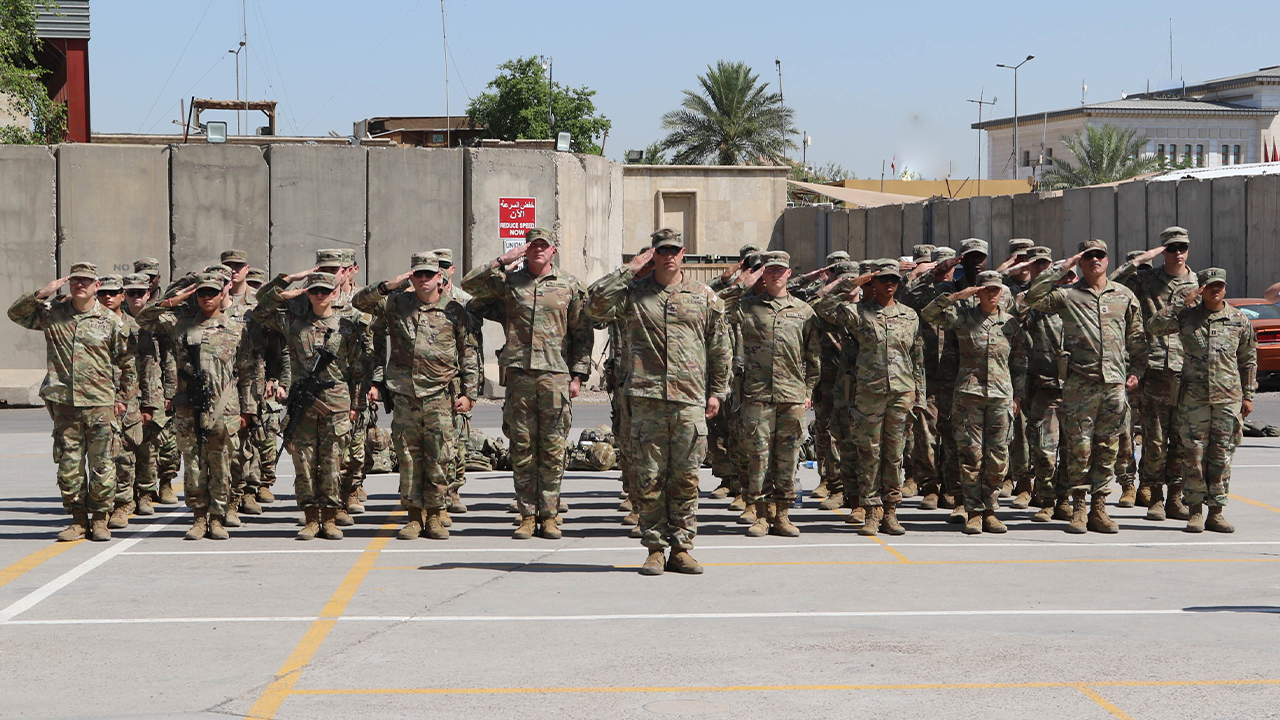
U.S. Military personnel stationed in Baghdad, Iraq held a Memorial Day service Monday to honor the three U.S. Army soldiers who were killed in a drone attack in Jordan earlier this year.
Combined Joint Task Force Operation Inherent Resolve presented the ceremonial wreath at the Memorial Day ceremony at the Union III base, in Baghdad’s Green Zone. Those in attendance paid their respects to the fallen service members.
U.S. Army Maj. Gen. J.B. Vowell, Combined Joint Task Force – Operation Inherent Resolve Commanding General, writes the name of a fallen service member on the Memorial Day wall during a ceremony at Union III in Baghdad, Iraq, May 27, 2024. (U.S. Army)
Staff Sgt. William Rivers, 46, Sgt. Kennedy Sanders, 24, and Sgt. Breonna Moffett, 23, were killed Jan. 28 after a drone attack by an Iranian proxy group hit Tower 22, a small U.S. outpost in northeast Jordan, on the Iraq, Syria, Jordan tri-border, where they were stationed.
BIDEN ADMIN REVERSES COURSE, GRANTS PERMIT FOR CATHOLIC GROUP’S MEMORIAL DAY MASS AT NATIONAL CEMETERY
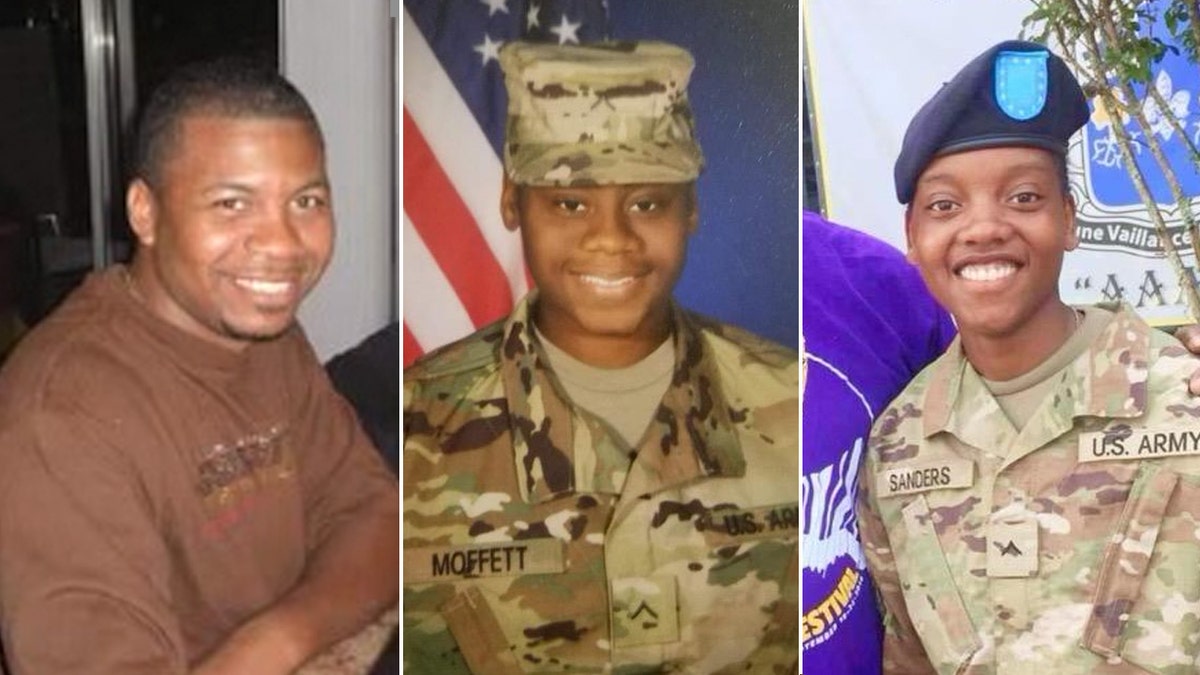
L-R: Sgt. William Rivers, Spc. Breonna Moffett, and Spc. Kennedy Sanders. (Fox News )
The soldiers had been stationed at Tower 22 just across the border from Syria to support the mission to defeat ISIS.
At its height, over 100,000 people lived there, blocked by Jordan from entering into the kingdom at a time when concerns about infiltration by the extremist group were rampant. Those concerns grew out of a 2016 car bomb attack there, that killed seven Jordanian border guards.
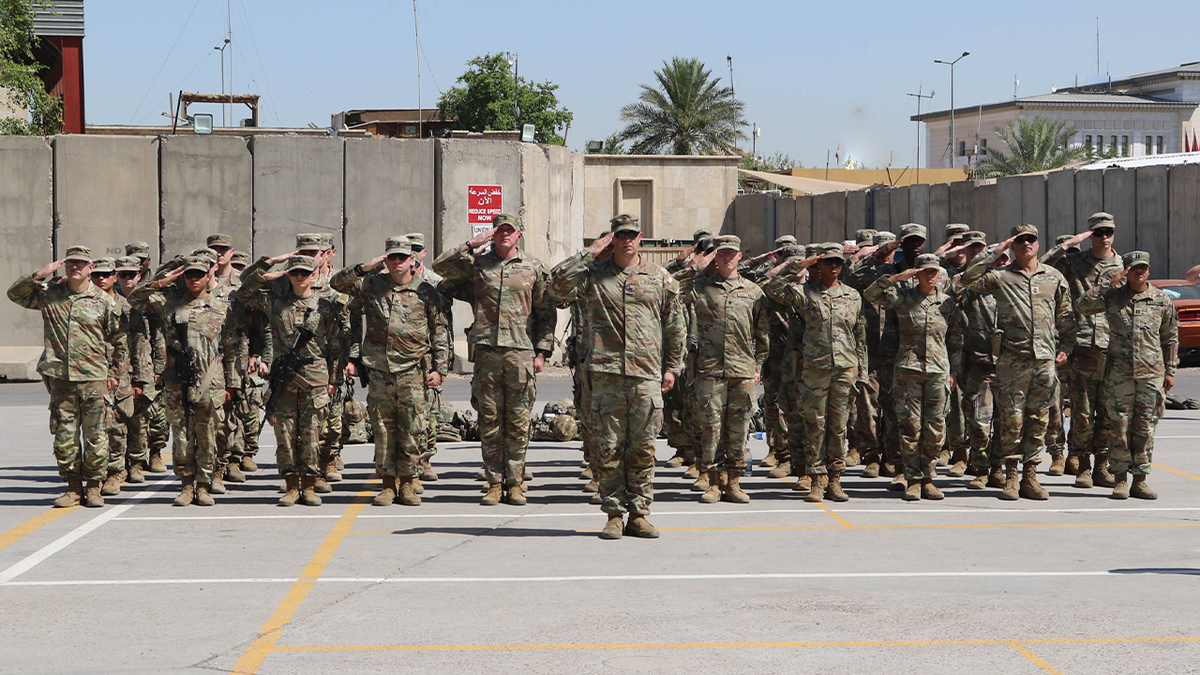
Operation Inherent Resolve soldiers stand in formation and salute the United States flag during a Memorial Day ceremony at Union III in Baghdad, Iraq, May 27, 2024. (U.S. Army)
The camp has dwindled in the time since to some 7,500 people because of a lack of supplies, per United Nations estimates.
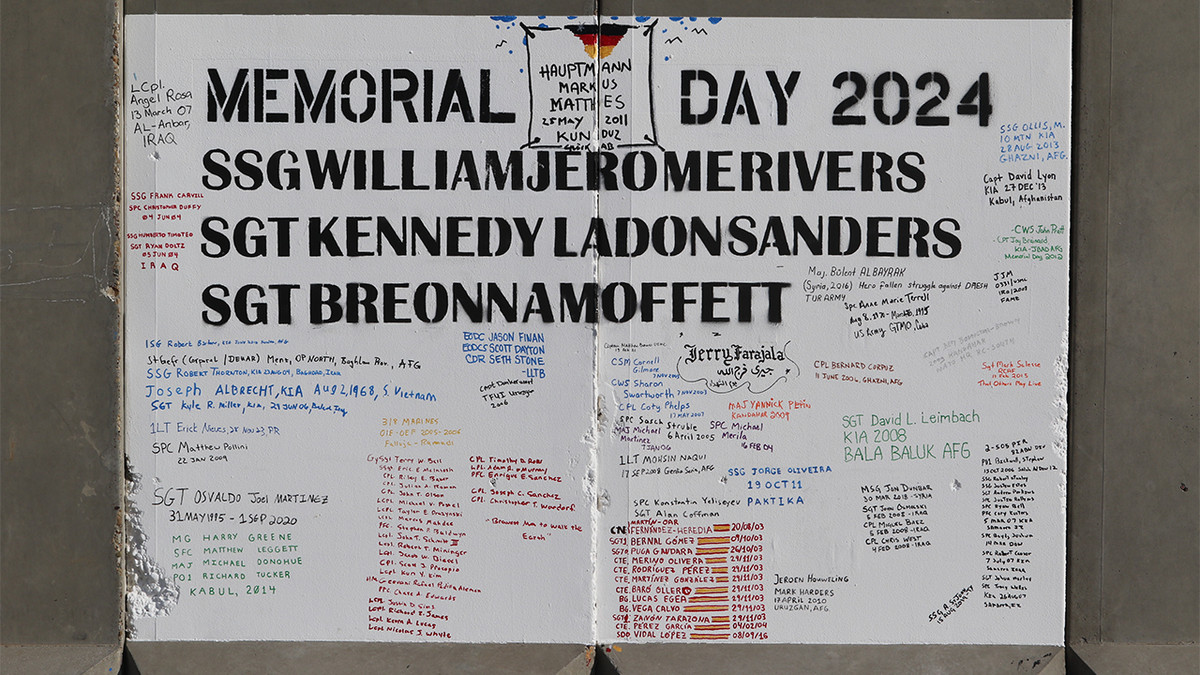
The Memorial Day Wall at Union III in Baghdad, Iraq, May 27, 2024. (U.S. Army)
The base began as a Jordanian border observation outpost, then saw an increased U.S. presence after American forces entered Syria in late 2015. The small installation includes U.S. engineering, aviation, logistics and security troops with about 350 U.S. Army and Air Force personnel deployed there.
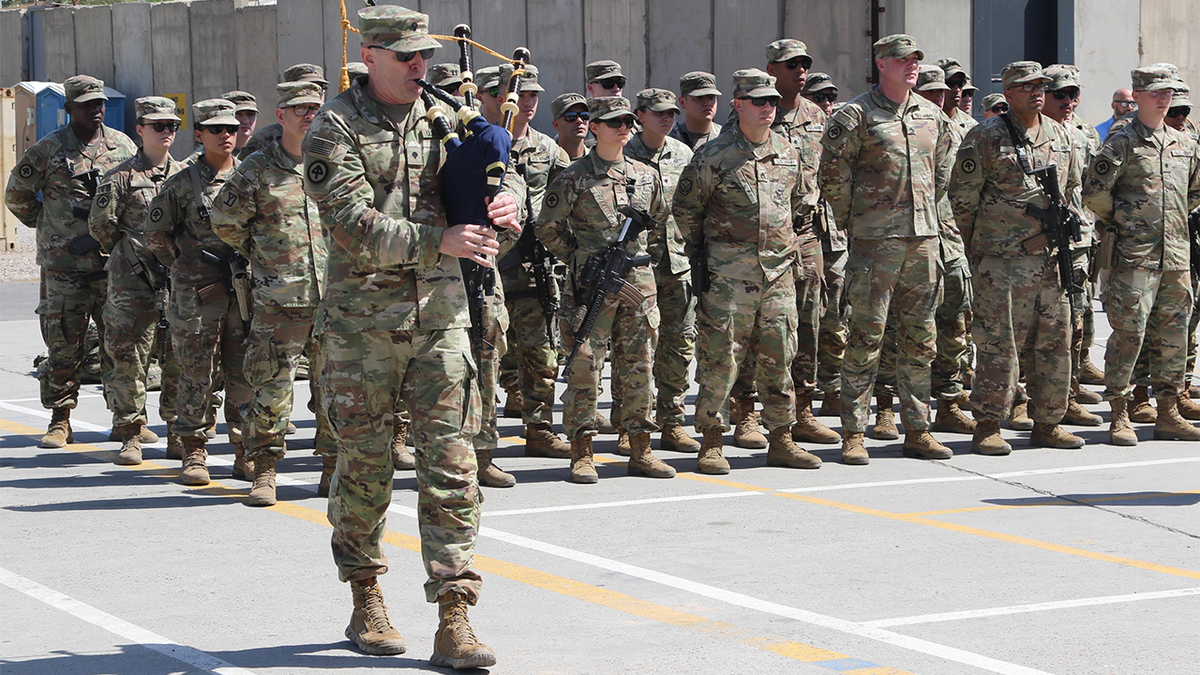
A U.S Army soldier assigned to 1st Battalion, 181st Infantry Regiment, 44th Infantry Brigade Combat Team, New Jersey National Guard, plays Amazing Grace on bagpipes during the Memorial Day ceremony at Union III in Baghdad, Iraq, May 27, 2024. (U.S. Army)
Rivers, Sanders and Moffett were all assigned to the 718th Engineer Company, an Army Reserve unit based in Fort Moore, Georgia, previously known as Fort Benning.
The Associated Press contributed to this report.
World
EU convenes Israel to discuss respect of human rights, ICJ ruling
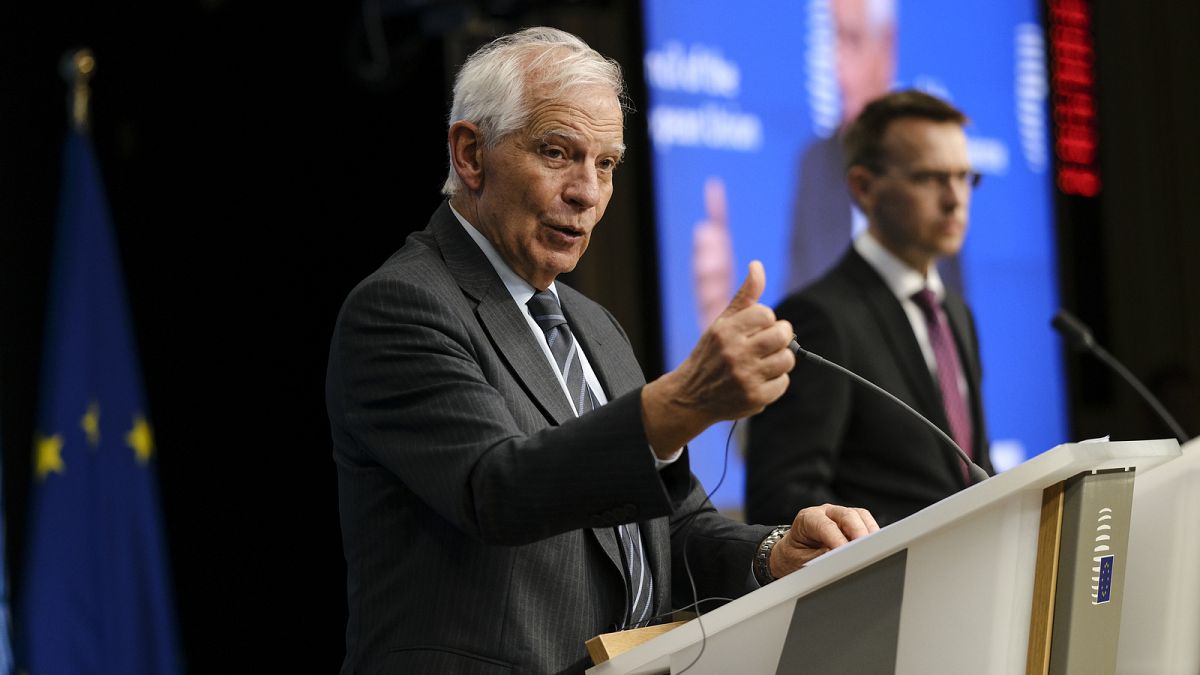
The breakthrough comes three month after Ireland and Spain first pressed on the EU executive to re-open its trade deal with Israel.
European Union foreign ministers unanimously agreed on Monday to call for an Association Council with Israel to discuss the country’s compliance with its human rights obligations under the EU-Israel trade deal, also known as the Association Agreement.
The bloc also intends to use the meeting to confront Netanyahu’s government about its compliance with Friday’s ruling by the International Court of Justice (ICJ), which ordered Israel to halt its intended military offensive in the city of Rafah.
The move comes three months after Spanish Prime Minister Pedro Sánchez and the then Taoiseach Leo Varadkar first made a plea for the urgent review of the EU-Israel Association Agreement, citing serious concerns over Israel’s military campaign in Gaza and potential violations of human rights and international law.
Article 2 of that agreement, struck in 2000, stipulates that the agreement is “based on respect for human rights and democratic principles.”
Europe is Israel’s main trading partner, accounting for just under a third of all commerce, meaning the Agreement is seen as a powerful tool for the bloc to exert pressure on Netanyahu’s war cabinet to refrain from its offensive in the war-torn Gaza Strip.
Despite the firm backing of human rights groups and the UN’s special rapporteur on Palestine, the EU had failed to garner political backing for the move until the breakthrough on Monday.
“We got the necessary unanimity to call for an Association Council with Israel to discuss the situation in Gaza (…) and the respect of human rights under the obligations that Israel has assumed under the Association Council and how they plan to implement the ruling of the court,” Borrell told reporters, referring to Friday’s ruling by the Hague-based court.
“But what we have seen since the court has issued its ruling (is) not the stop of military activities but on the contrary an increase in the military activities, an increase in the bombing and an increase in the casualties to the civilian people, as we have seen last night,” Borrell added.
On Sunday, an Israeli air strike on a camp of displaced Palestinians in the southern Gazan town of Rafah left at least 45 dead, including women and children, prompting global condemnation.
“The last figure seems to be around 40 people, including a small children being burned. I condemn this in the strongest terms. It proves that there is no safe place in Gaza,” Borrell said, describing the images, including those of burnt children, coming out of Rafah as “shocking.”
The IDF has since opened an investigation into the massacre, claiming it was targeting two senior Hamas officials.
EU foreign ministries have harshly criticised the attack, with the German foreign ministry saying the “images of charred bodies” are “unbearable.”
Bloc ups pressure on Israel amid diplomatic spats
Responding to the decision to convene an Association Council, Belgian foreign minister Hadja Lahbib said the move was a “strong signal.”
“We must ensure that our rules and values are respected by all, and above all by our partners like Israel. Our credibility depends on it,” Lahbib, whose government is a staunch supporter of the Palestinians, added.
Other foreign ministers, such as Slovenia’s Tanja Fajon, called for the bloc to go further by slapping sanctions on Israel for its continued violations of international law in its Gaza offensive.
“I strongly condemn Israel’s attack last night on the displaced Palestinians, in which many children were also burned to death,” Fajon, whose government is taking steps to recognise the State of Palestine, said on social media platform X.
“In Brussels (…) today I will stand up for respect for international humanitarian law and decision (of the) ICJ. In case of continuing violations, (the) EU must react uniformly and decisively, including sanctions,” Fajon added.
Borrell declined to comment on whether he believed his Israeli counterparts would agree to attend the Association Council, amid increasing diplomatic tensions with two member states – Ireland and Spain – which announced last Wednesday they would formally recognise the State of Palestine tomorrow, May 28.
A diplomatic row has since erupted, particularly between Israel and Borrell’s native Spain, with Israeli foreign minister Israel Katz issuing a statement Monday morning announcing his government would prohibit Spain from providing consular services to Palestinians in the West Bank.
Katz has also accused Spain’s recognition of Palestine as a “reward for terrorism.”
Borrell described the escalation as “everything but diplomatic.” “This is a completely unjustified and extreme verbal aggression,” he added.
The bloc’s top diplomat also acknowledged there was no unanimous appetite to consider sanctioning Israel for its actions in Gaza but suggested their stance could shift if Netanyahu’s government “continues to ignore” the ICJ’s ruling.
-

 Movie Reviews1 week ago
Movie Reviews1 week ago‘The Substance’ Review: An Excellent Demi Moore Helps Sustain Coralie Fargeat’s Stylish but Redundant Body Horror
-

 Politics1 week ago
Politics1 week agoTrump predicts 'jacked up' Biden at upcoming debates, blasts Bidenomics in battleground speech
-

 World1 week ago
World1 week agoIndia’s biggest election prize: Can the Gandhi family survive Modi?
-

 Finance1 week ago
Finance1 week agoSan Bernardino finance director claims she was fired after raising concerns about costly project
-

 News1 week ago
News1 week agoVideo: A Student Protester Facing Disciplinary Action Has ‘No Regrets’
-

 Movie Reviews1 week ago
Movie Reviews1 week ago‘Blue Sun Palace’ Review: An Intimate, Affecting and Dogma-Free Portrait of Chinese Immigrants in Working-Class New York
-

 Movie Reviews1 week ago
Movie Reviews1 week ago‘Rumours’ Review: Cate Blanchett and Alicia Vikander Play Clueless World Leaders in Guy Maddin’s Very Funny, Truly Silly Dark Comedy
-

 World1 week ago
World1 week agoPanic in Bishkek: Why were Pakistani students attacked in Kyrgyzstan?


